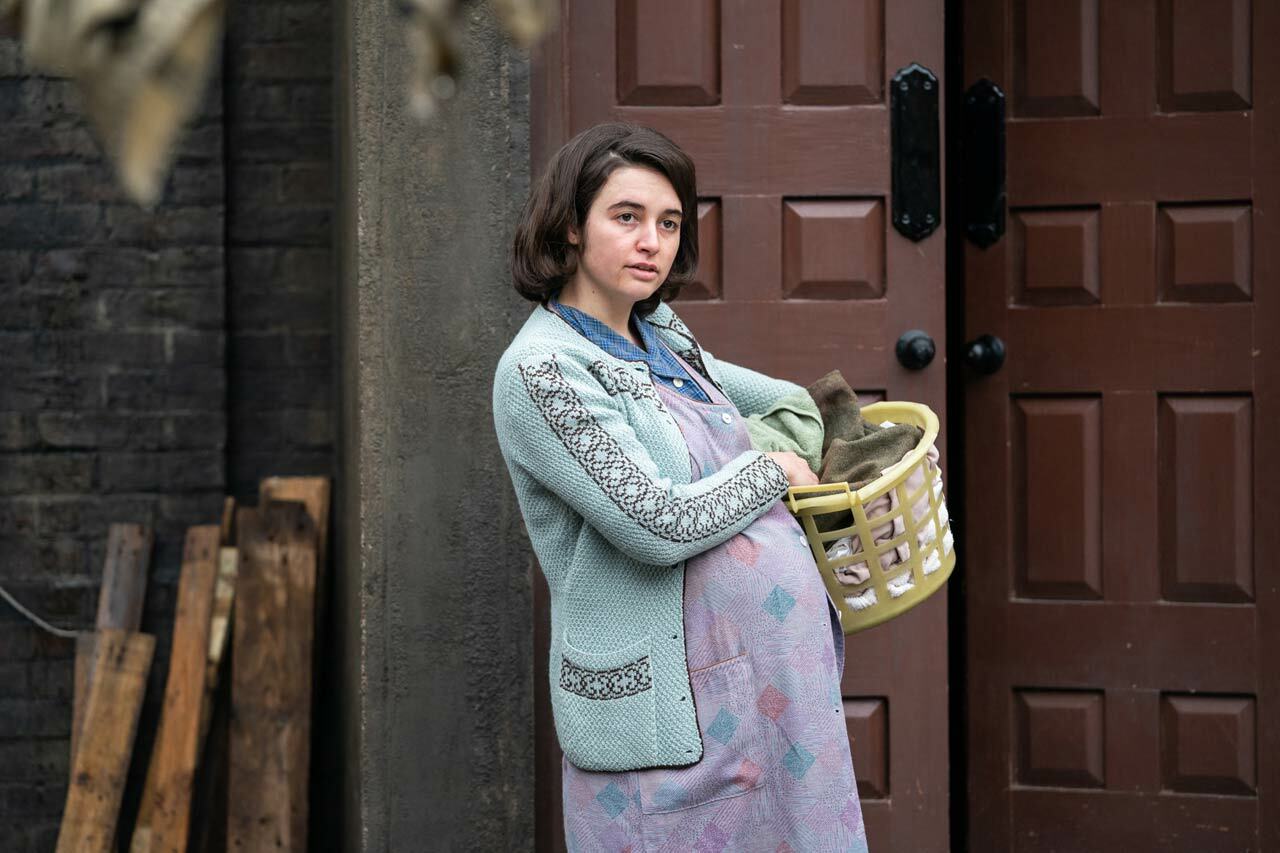
“Poverty is not natural. It is man-made…and overcoming poverty is not a gesture of charity; it is an act of justice. “- Nelson Mandela
According to the US Census Bureau, the 2020 poverty rate was 11.4%, a 1% increase from the prior year, after five consecutive years of decline. This translates to 37.2 million people in the US living in poverty. A 1% increase equates to 3.3 million more people than the year prior added to that number. Women and children who live in poverty often bear the greatest brunt of these circumstances. The image of Sister Frances (played delightfully by Ella Bruccoleri), who is naïve to much of what happens out in the world, bludgeoning the rat she finds in the new baby’s sleep area catches our breath. She is beside herself as she passionately approaches Violet Buckle (played by Annabelle Apsion), as town councilmember, to appeal to her sense of decency in rectifying the horrible injustice of east enders who live in poverty.
Throughout history parents have had to make horrific decisions in the name of poverty. It was commonplace in ancient societies, for newborn females to be taken out in the wilderness and left there to die by their parents; this was called “exposing.” Males were viewed as “more valuable” than females – they could support the parents in old age; a daughter was seen only as a potential drain on the family, and their meager resources. Another astonishing example of this resulted in a religious edict. At one time, Catholic priests divulged hearing all too frequent confessions from impoverished mothers who agonizingly purposely lain over their tiny babies to suffocate them because they could not afford one more mouth to feed. As a result, the Catholic Church declared that babies should sleep in their own space – outside of the parental bed – until the age of three years. I truly cannot imagine getting to that point of despair wherein one’s only conceivable option is to sacrifice a child; unfortunately, that kind of hopelessness is all too real for so many families.
Hopefully, Matthew Aylward (played by Olly Rix) will live up to his promise to rectify the situation – he seems sincere enough. And whether midwife Trixie’s justifiably impassioned outburst on the stairs significantly influences his sense of decency, we have yet to see; nevertheless, we look forward to seeing him “right” the wrongs caused by the poverty seen among the east enders cared for by the Nonnatus midwives.
The other prominent storyline this week was that of the sister who planned to allow her childless sister to adopt her baby. Plans changed, however, when the baby was noted to have Down Syndrome. As a result of the diagnosis, suddenly the baby was “no longer desirable” to the sister who had planned to adopt him. I really loved how the show’s writers then pulled Fred and Violet Buckle’s adopted son Reggie (played superbly by Daniel Laurie, an actor with Down Syndrome) into the storyline to demonstrate the richness that Reggie brings to their lives. Seeing Violet tell the birth mother, who by then intended to keep her baby, how fortunate she is (to be able to raise a child with Down Syndrome) is both telling and poignant, and a point that families of children with Down Syndrome can identify.
This storyline made me think; with the advances made in prenatal genetic testing over the recent past decades, it gives us pause to ponder on how these advances have/will affect the makeup of our society in the future. Births of babies with Down Syndrome, for example, have markedly declined in several countries like Iceland and Denmark. For example, with the advent of prenatal screening in Iceland (in the early 2000s), it has been reported that nearly 100 percent of women who have received a positive genetic test result indicating Down syndrome in their babies have terminated their pregnancy. Denmark has termination rates for fetuses affected by Down Syndrome at 98 percent, while in the US it runs around 67 percent (1). This should have all of us, at the very least, asking what we sacrifice as a society to selectively welcome some members, and not others.
Get Another Take: Recommended Call the Midwife Recaps
From Thirteen.org | The British Tele Dish
From WTTW Chicago | The Playlist Blog
From NPT Nashville | The Vanderbilt University School of Nursing Recap
From WETA Washington | The Tele Visions Blog
From WGBH Boston | Watch Drama After Dark or Read the weekly recap